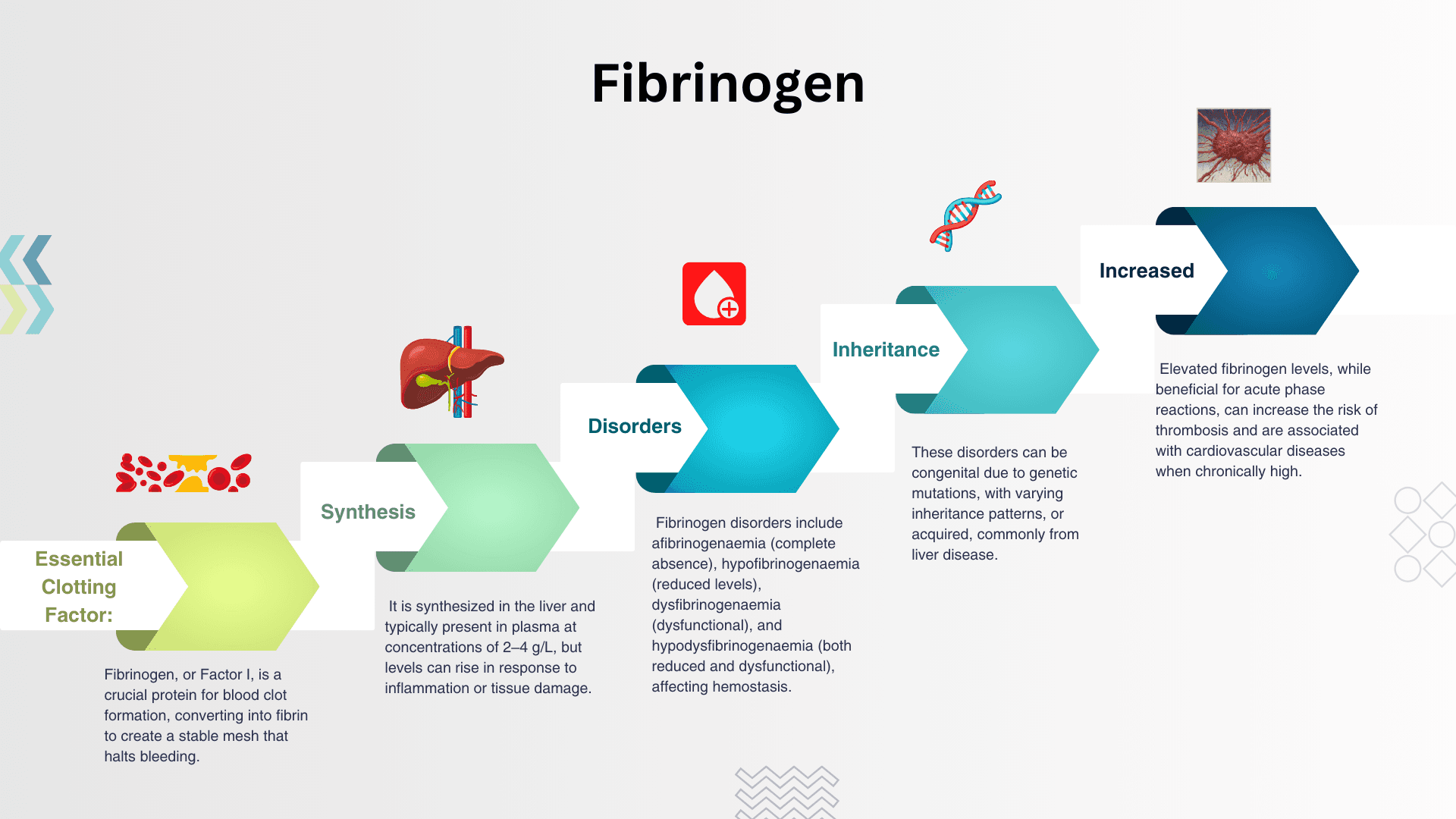Download A4Medicine Mobile App
Empower Your RCGP AKT Journey: Master the MCQs with Us!

Fibrinogen is a critical glycoprotein in the coagulation cascade, serving as the central precursor to the formation of fibrin, the protein that cross-links and forms the backbone of blood clots. This soluble plasma factor, primarily synthesized by the liver, is transformed into an insoluble fibrin mesh by the enzymatic action of thrombin during hemostasis. With a molecular weight of approximately 340 kDa, fibrinogen is among the most abundant coagulation factors circulating in human plasma.
The concentration of fibrinogen in the plasma is an important determinant of clotting ability and is carefully regulated, typically ranging between 1.5 to 4.0 g/L. However, fibrinogen is also an acute-phase reactant, meaning its levels can significantly increase in response to systemic inflammation, tissue injury, infection, malignancy, and during pregnancy. These elevated levels play a role not only in hemostasis but also in pathophysiological processes, including thrombosis and cardiovascular diseases.
The interplay between fibrinogen levels and clinical conditions is complex. While it is indispensable for clot formation and vascular integrity, abnormally high levels are associated with an increased risk of thrombosis and have been correlated with poor prognoses in various cancers and cardiovascular diseases. Conversely, deficiencies in fibrinogen, whether due to genetic conditions such as dysfibrinogenemia...
Try our Free Plan to get the full article.